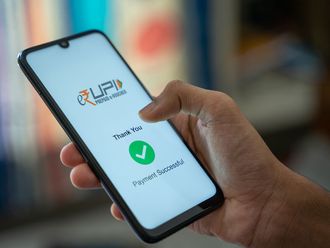
In the GCC, digital ways are reshaping the healthcare sector. Within this, ‘virtual care platforms’ have created a gatekeeper model that promises not just health care but health assurance, with a focus on value-based outcomes that benefit hospitals and patients as well as insurance companies and regulators.
Mobile health solutions, a cornerstone of virtual care platforms, are liberating healthcare from the confines of their traditional settings. Mobile apps, with a layer of AI, are leading this change, offering patients real-time health monitoring and advice. This shift is not just about convenience; it's about cost-effectiveness and optimal care, with mobile health initiatives potentially saving millions in avoidable hospital visits. And delivering optimal care via timely prescription refills and a completed care continuum.
Democratising health
The democratisation of healthcare is a cornerstone of the digital health movement. AI solutions are coming in handy as healthcare records are exhibited in multiple formats of reports, charts, scans and handwritten notes.
A super-app rich in features covering a continuum of care, companionship and compassion, moving on to become an ‘ultra-app’ with the help of AI will be the future. Accordingly, hyperlocal healthcare solutions, integral to virtual care platforms, redefine what it means to receive care.
By leveraging such platforms, services like CareSkore, Bimah, Okadoc, Health in Her Hue, Calm and TalkSpace make population health management and mental health support accessible to all, regardless of location or socio-economic status. This inclusivity is ethical and economical, reducing the long-term costs associated with untreated conditions.
Additional spin-offs
- For new mothers dealing with post-delivery challenges, including postpartum depression, virtual care platforms provide discreet and immediate access to mental health professionals.
- The expatriate community, forming a large part of the GCC population, benefits from virtual care platforms that offer familiar healthcare services in a foreign land, mitigating the stress of displacement.
- During Haj and Umrah, these healthcare platforms can play a crucial role, offering remote consultations and emergency care guidance.
Financial impact
The financial implications would be profound. With value-based care, insurance companies see substantial savings per episode of care, while providers benefit from streamlined operations and reduced overheads.
The Middle East and Africa’s telehealth market, valued at $2.6 billion in 2021, is projected to grow at a CAGR of 26.3 per cent from 2022-30, indicating a trend where tech solutions increasingly capture a larger share of healthcare dollars previously held by traditional providers. As a random example of savings, in the US, direct healthcare costs associated with non-adherence (to prescription refills and follow-ups) have grown to approximately $100–$300 billion annually.
Shifting from service to care
The traditional healthcare model in the GCC, heavily reliant on OPD and domiciliary work, is facing a paradigm shift. Hospitals must pivot towards specialised care to survive, as virtual care platforms siphon up to 70 per cent of their revenue from routine services. The West has already seen such a transition, with tech solutions significantly reducing the load on traditional hospital setups.
As the GCC embraces this new era of healthcare, traditional institutions must adapt or risk obsolescence. The future is clear: technology will continue to drive healthcare towards more personalised, efficient, and equitable solutions.












